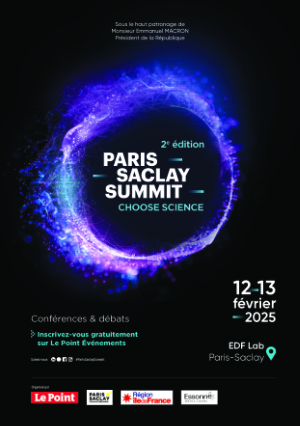Optical telemeter on a contact lens
| ABG-127347 | Stage master 2 / Ingénieur | 4 mois | 650 euros approx |
| 03/12/2024 |
- Sciences de l’ingénieur
- Electronique
Établissement recruteur
Site web :
IMT Atlantique, internationally recognized for the quality of its research, is a leading general engineering school under the authority of the Ministry of Industry and Digital Technologies, ranked in the 3 main international rankings (THE, SHANGAI, QS). With three campuses in Brest, Nantes and Rennes, IMT Atlantique aims to combine digital technology and energy to transform society and industry through training, research and innovation.
The Optics teaching and research department is located on the Brest site and covers several research areas. Among them is the CAI² group which develops sensors for health and environmental applications. This can be performed using flexible substrates, organic materials and innovative structuring technologies available through the ARAGO platform.
https://www.imt-atlantique.fr/sites/default/files/recherche/plateformes/arago.pdf
Description
The aim of this internship is to set up an optical rangefinder adapted to an instrumented contact lens. We will use laser feedback interferometry to measure distances, as this method is widely used in industry and the laboratory to measure displacement, distance and velocity of solid targets. The optical part of the rangefinder will be a laser feedback interferometry (LFI) sensor composed of two VCSELs and a photodiode. The LFI is a single-chip device from Trumpf. It modulates laser power and, from variations in the photocurrent resulting from reflected light, calculates distance. Control of the LFI's VCSELs and calculation of the distance will be carried out using an NFC-powered microcontroller from NXP, which we have already implemented on contact lenses. Once the calculation is complete, the data will be transmitted to the frame via the NFC protocol. Before implementing the whole system on contact lenses, we need to evaluate the rangefinder's performance. To do this, we'll be using an NXP development board. The aim is to design the microcontroller program that controls the VCSEL, calculates the distance and sends the measurements back to the frame via NFC.
The programming environment for the microcontroller is NXP's own MCUXpresso, programmed in C. The reader is built around a NXP chip, the PN7642, which can also be programmed via MCUXpresso.
To fulfil the tasks in this project, the selected student’s tasks will include:
- Acquiring knowledge on the NHS3152 microcontroller and its programming environment.
- Understand how to measure distance using LFI
- Implement LFI program and test
- Assess performance
- Possibility to carry on with a Ph.D
Profil
Master 2, ingénieur,
Prise de fonction
Vous avez déjà un compte ?
Nouvel utilisateur ?
Vous souhaitez recevoir nos infolettres ?
Découvrez nos adhérents
 ONERA - The French Aerospace Lab
ONERA - The French Aerospace Lab  Généthon
Généthon  Groupe AFNOR - Association française de normalisation
Groupe AFNOR - Association française de normalisation  Tecknowmetrix
Tecknowmetrix  Laboratoire National de Métrologie et d'Essais - LNE
Laboratoire National de Métrologie et d'Essais - LNE  TotalEnergies
TotalEnergies  CESI
CESI  CASDEN
CASDEN  Ifremer
Ifremer  Aérocentre, Pôle d'excellence régional
Aérocentre, Pôle d'excellence régional  Institut Sup'biotech de Paris
Institut Sup'biotech de Paris  Nokia Bell Labs France
Nokia Bell Labs France  ADEME
ADEME  MabDesign
MabDesign  Institut de Radioprotection et de Sureté Nucléaire - IRSN - Siège
Institut de Radioprotection et de Sureté Nucléaire - IRSN - Siège  SUEZ
SUEZ  PhDOOC
PhDOOC  MabDesign
MabDesign  ANRT
ANRT




